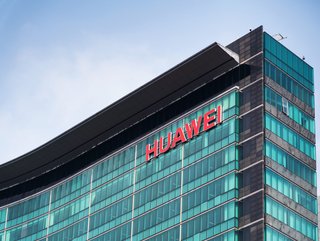Huawei Slows Smartphone Production on Account of AI Chips

Increased demand for Huawei’s AI chips has led the tech giant to slow down its smartphone production.
Reuters has reported that, given the surge in popularity the company has experienced with its AI chips, in addition to manufacturing constraints, the company is slowing the rollout of its Mate 60 phones in favour of AI. Huawei has also prioritised production of its Ascend chips over Kirin chips and has slowed new smartphone manufacturing as a result.
This news comes in the midst of Huawei, among others, having to handle US restrictions on AI chips manufactured in the People’s Republic of China as a way to limit investments.
An ever-evolving smartphone market
Huawei Ascend AI chipsets adopt company architecture to support a wide range of AI applications. Through the acceleration of all-AI service processes, Huawei states that the overall performance of the AI system is greatly improved and costs are reduced.
Huawei has been struggling in the smartphone market in recent months, with tech giant Apple having taken over as the largest smartphone vendor in China in 2023. This was as a result of the company being impacted by the 2019 US sanctions that resulted in it being cut off from key technologies like semiconductors and software.
Currently, Huawei’s new Mate 60 smartphones are continually out of stock, with complaints circulating over delayed waiting times. The smartphone, manufactured by SMIC, helped Huawei shipments grow 36% year-on-year at the end of 2023 and held a 13.9% market share.
The new product has led to Counterpoint Technology Market Research stating that Huawei has regained the top spot in China’s smartphone market, as Apple begins to struggle in a more competitive Asian market. This could be in part due to its AI chips manufactured in China.
Given the global demand for more flexible and tailored AI, businesses are scrambling to buy the latest chip technology to accelerate their digital transformations. This move by Huawei to prioritise AI over smartphones signals the reality of how the company has had to develop in response to US sanctions.
AI continues to dominate the digital economy
With AI and chipmaking sanctions placed on the region by the US government, its AI and computing development was inevitably impacted. The decision was made to dampen the country’s ability to export high-end chips, leading chipmakers like NVIDIA, for example, to strike up their own deals within China to facilitate chipmaking in the region.
NVIDIA has stated that as much as 25% of its data centre chip revenues come from China and so started taking pre-orders for a new China-specific AI chip towards the end of 2023, which is allegedly priced similarly to a rival product from Huawei. The H20 chip in particular has been cited as the most powerful of the three new chips.
For Huawei, it was reported in November 2023 that Chinese internet giant Baidu had ordered 1,600 of Huawei’s 910B Ascend AI chips for 200 servers. These chips were developed as an alternative to NVIDIA’s A100 chip.
China is quickly growing its own AI economy, as part of its bid to boost the country’s computing power by 50% by 2025 - hoping to become a global leader in AI by 2030. The country is focusing on the practical application of AI models and seeks to advance the technology quickly, whilst investing in computing power, memory storage, data networks and data centres.
******
Make sure you check out the latest edition of AI Magazine and also sign up to our global conference series - Tech & AI LIVE 2024
******
AI Magazine is a BizClik brand






